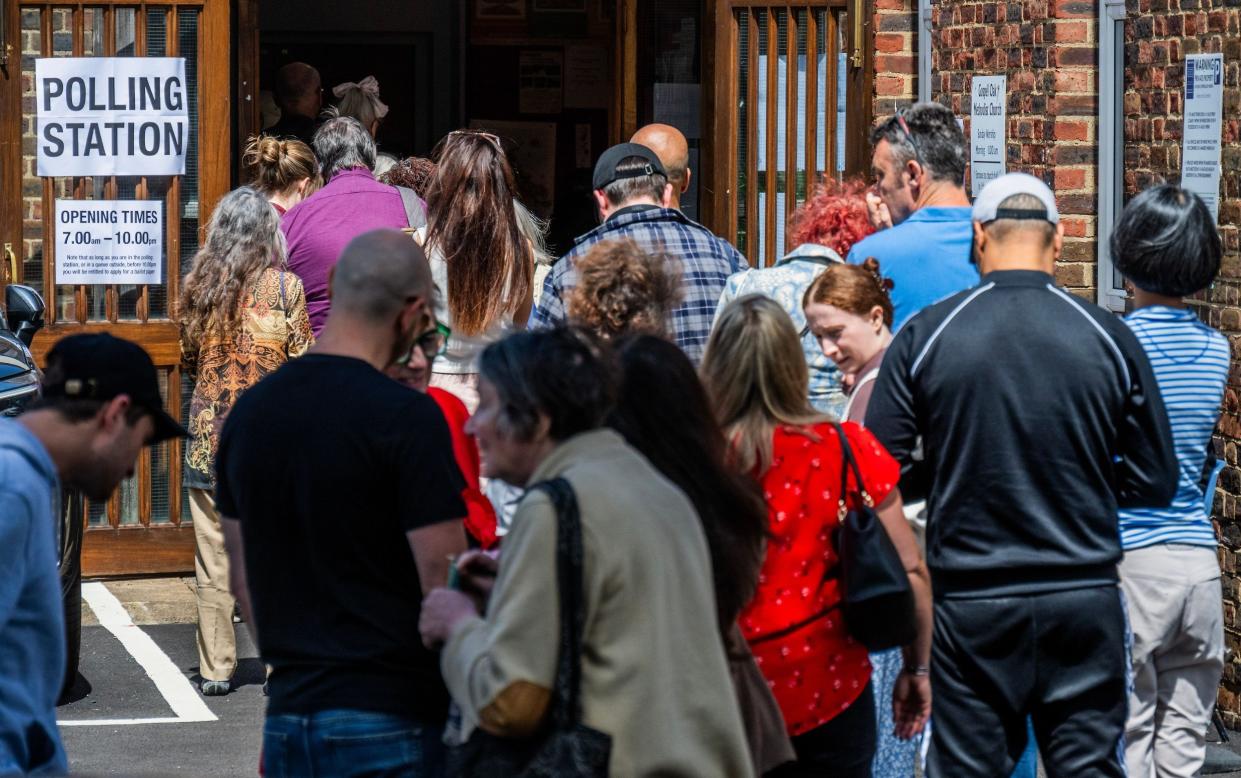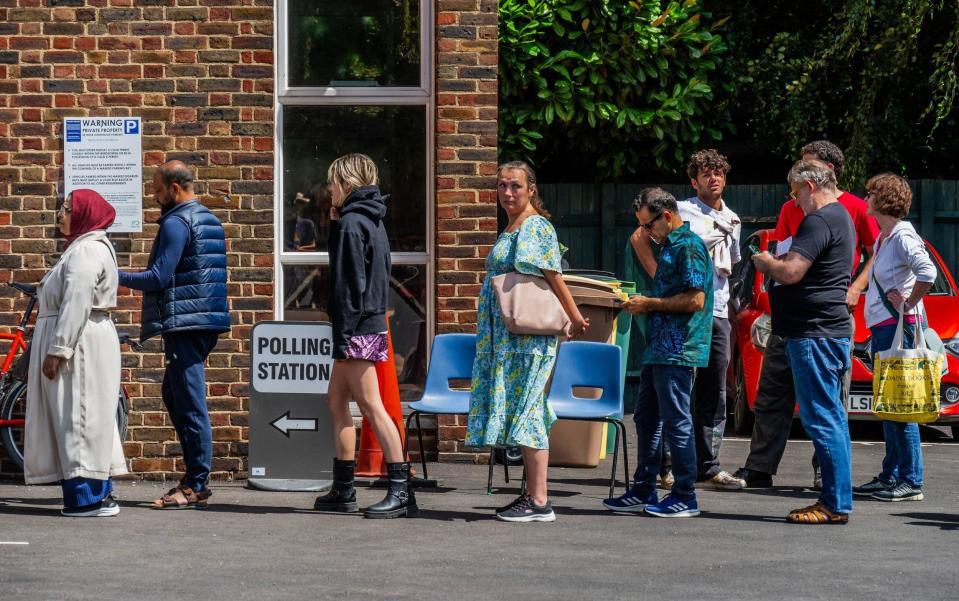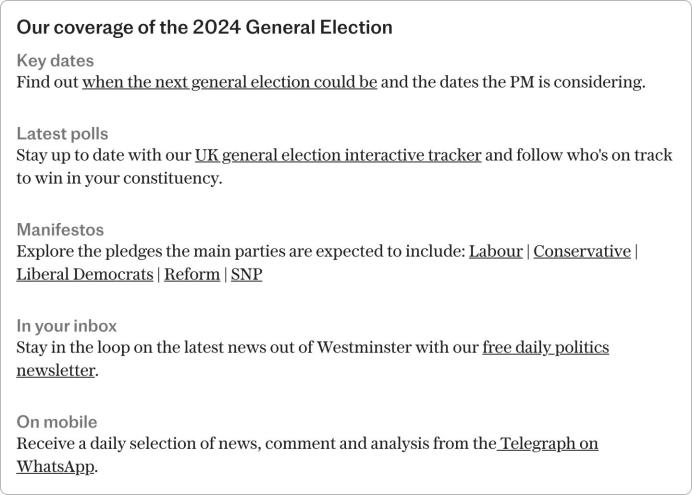Tories claim voter turnout higher than expected

The Tories have claimed voter turnout is higher than expected in what they hope could be a boost to their election chances.
Conservative headquarters issued an email to supporters and campaign teams urging them to ensure they were getting their vote out.
Higher turnouts have traditionally been seen to benefit the Tories because of the older, wealthier profile of their supporters.
It comes after successive eve-of-vote polls suggested the party was heading for one of the worst defeats in its history.
Surveys carried out by Savanta, More in Common, Focaldata and YouGov projected that Labour was heading for a landslide victory with a majority north of 200.
The Tory HQ email said: “We’re getting reports from our teams on the ground. And the more reports we get, the more it looks like turnout is higher than expected. That means we could have a much better chance than polls have suggested.”
There have been warnings from the Conservatives of a Labour “super-majority” in a bid to urge traditional Tory voters to back the party.
Turnout in general elections has declined from heights of 80 per cent in the early 1950s to a low of under 60 per cent in 2001. However, the trend has not been linear. Since 2001, turnout has increased, and hit 68.8 per cent in 2017.
Christopher Kirkland, a lecturer in politics at York St John University, said: “This can partly be explained by how tight many of the recent elections have been. When people can see a result could be close, they are more likely to perceive each vote as mattering more, which incentivises them to take part.
“And in three of the most recent UK elections, two have failed to produce a majority Government. Before 2010, only one election since universal suffrage produced a hung Parliament – in February 1974.”
The timing of the election has also been seen as a factor, with lower turnouts anticipated in colder months. The proportion who voted in December 2019 dropped after increasing in successive elections from a low in 2001.
Young people, particularly those from poorer backgrounds with fewer educational qualifications, are less likely to engage with democratic processes.
Older and younger generations of voters often hold different attitudes to political participation. Since 1997, the UK general election turnout rate for those aged 65 and over has consistently been at least 20 percentage points higher than for those aged 18 to 24.
Experts say this creates ageing democracies as the politically active section of the electorate gets older. Academics suggest that this can skew policymaking in favour of older voters.
However, since 2015 there has been a modest increase in turnout among young people, which some attribute to the influence of social media in helping boost engagement with politics.

Brian May, the Queen guitarist, the singer Myleene Klass and Sir Tony Robinson, the Blackadder actor, were among the stars casting their ballots on Thursday and encouraging others to vote in the general election.
May 76, shared a video of the sign outside his local polling station and said “the sweet scent of liberation is in the air”. He wrote on Instagram: “The mood of the country seems to be that this is a long-awaited chance to express their disgust at the ineptitude, arrogance and corruption that we have been forced to witness over the last decade.”
Klass, who has campaigned for changes to miscarriage law and women’s health care, shared a selfie outside her polling station and wrote: “I never thought it possible my voice could create change, and yet time and time again I have been able to prove that it does. I just need to use it.”


 Yahoo News
Yahoo News 
